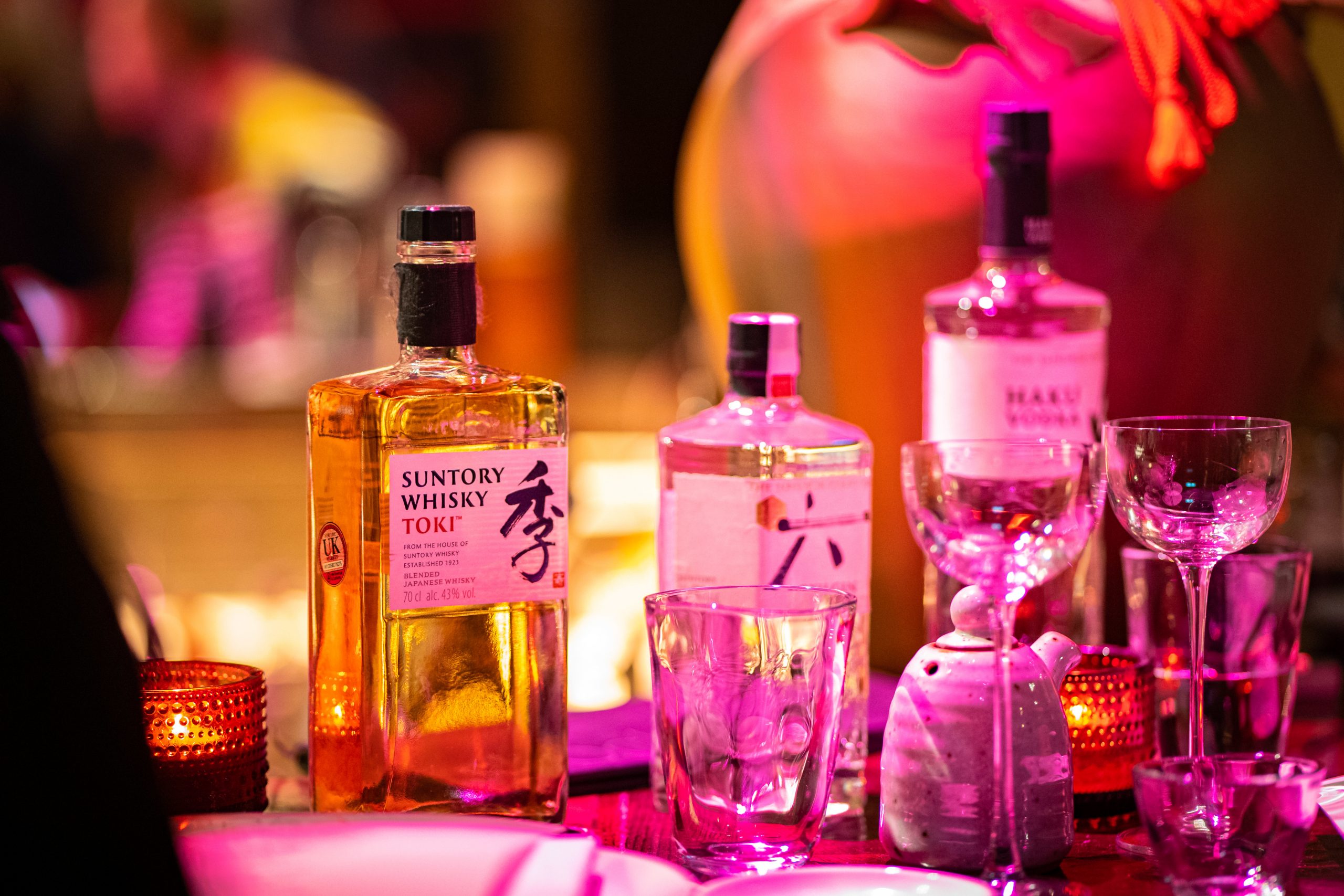In our latest House of Suntory DOJO interview, we speak to Zoe Burgess, the Master tasked with teaching the Programme’s lucky bartender-students about Psychology and Kaiseki – traditional Japanese multi-course service.
The process of interviewing the House of Suntory DOJO masters has left me with the impression that Japanese hospitality and spirits distillation could be described as a perfect blend of art and science. Looking to the UK’s own hospitality scene for practitioners with a similar approach, and inevitably Heston Blumenthal comes to mind. It makes perfect sense then that Zoe Burgess, who has created cocktail menus for Blumenthal’s Michelin-starred restaurants, founded consultancy Atelier Pip, and recently penned the book ‘The Cocktail Cabinet: The art, science and pleasure of mixing the perfect drink’ was asked to teach the DOJO students about the impact of the contemporary scientific insights on traditional approaches to hospitality – a process of evolution that perfectly mirrors the motto of Suntory’s Toki whisky: Reinventing Tradition.
BLUK: Psychology is obviously a huge subject, so could you tell us about your speciality and which aspects you will be teaching to the DOJO students.

ZB: House of Suntory’s DOJO programme is a great opportunity for bartenders to learn about, and immerse themselves in, Japanese culture. During my masterclasses at this year’s DOJO programme, we focused on how we can take elements from modern Psychology to influence the guests experience of flavour.
My point of view on drink development considers how we taste and experience flavour through all the senses. Setting can influence those aspects and comes from my interest in cognitive psychology and science. At the beginning of my career, I was curious about how our brain and emotions interact with our senses and environment and, ultimately, how we experience flavour.
This led me to later collaborate with some of the world’s most respected sensory scientists, including Oxford University’s Charles Spence and the University of London’s pioneering chemist Andrea Sella.
For DOJO, I discussed colour, for example, and how what we see and what our brain ‘assumes’ is different. It’s important to consider that inconsistency within a venue and how it interacts with the drinks we create. We’re also aware that some colours have cultural significance and emotional associations that can and do evolve over time.
My interest in science and psychology allows me to present an informed link between creativity and people’s enjoyment of the cocktails I create no matter how much one bar concept differs from another. Hopefully, I was able to share this understanding with the DOJO students.
BLUK: How does having an understanding of Psychology help bartenders create great experiences for their guests?
ZB: To successfully create a unique, memorable experience, you need to be able to put yourself in the guests’ shoes and see what you are making with new and honest eyes. It is about understanding, in detail, the sensory aspect of the guests’ experience, as this is where we have the potential to create a lasting positive impression. Once we are aware of this, it can be played with in a bar setting.
For DOJO, I also distinguished music versus sound and where music, if consciously curated, can help to build a narrative. Music is transformative and can change our understanding of what we see, feel and taste.
Scent is another powerful sensory tool. We absorb information from our noses all the time without realising it. Smell can be conscious, but more often than not, it is unconscious. Therefore, it’s important for bartenders to remember that scent is more than what is contained within the glass and to ask themselves: Are the scents in your venue consistent? Do they change as you move around the space? Can scent be used in a more impactful yet sensitive way in your space?
BLUK: How do drinks fit into a traditional Kaiseki service?
ZB: Drinks need to seamlessly become a part of the experience, to not take anything away from the food but add to it. In this sense, they act as the perfect garnish for your meal. This makes them just as important an aspect of the experience as the meal.
BLUK :What principles from Kaiseki dining can be adopted by a bartender working in a drinks-only bar?
ZB: Kaiseki embraces awareness and attention to detail. If we start with this mindset, whatever is done next will be much more considered and set the bartender on a path of exploration with their work. It was great to be able to share this mindset with the DOJO participants, acknowledging how these skills can be transferred outside of the programme and into their everyday roles in the industry.
BLUK: When you were creating your DOJO masterclass session, which part of the learning jumped out as the principle or skill you were most looking forward to sharing with the bartender students?
ZB: My current fascination is with colour and its power as a sensory apparatus. It’s such an undervalued tool that I believe can be worked with in much greater detail across various sectors to enhance customers’ experience.
BLUK: Can you share a hospitality experience that in your opinion perfectly demonstrated the combination of Psychology and Kaiseki in action, and how will your DOJO session help bartenders replicate it?
ZB: A recent lunch at The Fat Duck was one of the most memorable experiences in which I felt fully engaged in my senses. From the entrance and greeting to the last dish and drinks pairing, all that we received was considered and touched so many different sense points. While The Fat Duck is a very particular setting, I hope those who attended the DOJO classes will gain insight into a level of attention to detail that builds a foundation for these types of experiences.


